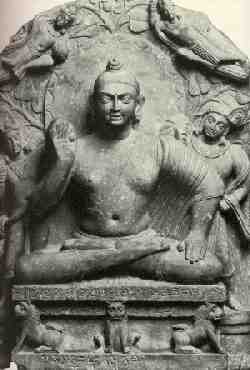


Bodhicitta is an important word in Buddhism. Bodhi is awakened. Citta is mind.
This is mind in the sense of completeness or fullness of our body/mind.
Bodhicitta describes the life of openness and coexistence with all things.
It is to practice living with the attitude that we are already part of
the world, that from the very beginning we have been intimately
interconnected with all things. Of course, we think and know this,
that we are part of the world. In practicing bodhicitta we move from
just understanding this to consciously fully living this. To consciously
fully live this is to make the effort to develop ourselves in a
responsible and considerate way. To practice bodhicitta is to deepen
this in each life situation that presents itself.
We must practice this mind of awakening by embracing all the things that arise in our lives. All the things and beings in our surroundings. All the thoughts and actions of ourselves. Everything is to be acknowledged. This is to experience the Buddhist word karuna which is compassion, loving kindness, true love. At the same time we allow things to awaken us, to be open to receiving what arises in our lives.
 A natural form of true love is between a mother and her baby. The mother so fully accepts the baby that it is part of her. There can be great joy at being in so intimate a relationship. The delight of the mother brings joy to the baby. But the baby will wake many times in the night, crying and wanting to be fed, just when the tired mother really needs sleep and rest. This is also part of the mothers life. Even though it is difficult, the mother must acknowledge and deal with the baby in these difficult moments.
A natural form of true love is between a mother and her baby. The mother so fully accepts the baby that it is part of her. There can be great joy at being in so intimate a relationship. The delight of the mother brings joy to the baby. But the baby will wake many times in the night, crying and wanting to be fed, just when the tired mother really needs sleep and rest. This is also part of the mothers life. Even though it is difficult, the mother must acknowledge and deal with the baby in these difficult moments.
This is the way of the bodhisattva. The being that is practising awakening. It is wonderful to experience true love and loving kindness. However, there is a tendancy to want just what is pleasant. We blossom when things go well and want things to always be that way. We tend to avoid what we dislike. Living this way we suffer from having a narrow viewpoint and become selfish. Some people may respond by denying their need for pleasure. Then a feeling of miserableness arises because we deny our desire for pleasure. It is natural to want to be happy and experience pleasure and joy. We need to see our practise as a way to turn and transform those desires from a selfish standpoint to the bodhisattvas standpoint. In practising bodhicitta, the awakening mind, we find that the unpleasantness and suffering must also be accepted. That there is pain as well as joy in this world. Eventually we come to see that there is nothing apart from us, we are part of the whole. Our happiness is not outside of others desire for happiness. This way we keep our pleasures and happiness but they have become the pleasure and happiness of others well-being.







